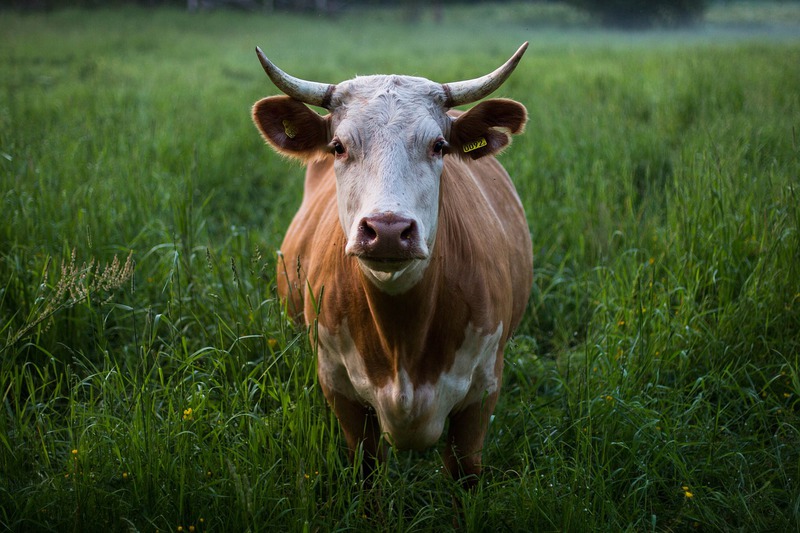Archimedes' cattle problem
Yet another nice mathematical problem I fell over recently: Archimedes’ cattle problem or Die Rinder des Helios in german or in austrian.

Allegedly invented by Archimedes who mentioned it in a letter to Eratosthenes. During his odyssey, Odysseus and his companions get stuck on an island where the cattle of sun god Helios are held. In a weak moment and despite all warnings, his men slaughter and eat some of them. Helios gets angry and kills everybody. Except naturally for Odysseus who spends the next seven years in Tibet, sorry Kalypso.
The question now is: How many cattle were there on the island that Helios got so angry? Archimedes’ answer is as follows: There are black, white, yellow and dappled animals. For each color there are a certain number of cows and bulls. The exact relations are:
So far so clear. An easily understandable problem which should be solvable with a little bit of manual work. Indeed, it is. But the solution is not so handy anymore:
Getting eaten two or three of his over fifty million animals should seem to be tolerable, but everybody knows how gods are sometimes.
Having a closer look at the problem reveals that there are eight variables but only seven equations. Therefore, there are infinitely many solutions and this is only the smallest one. Archimedes knew that and added these additional conditions:
Now this problem is a little bit harder. A first approximation was found in 1880 and in 1965 all decimal places were calculated. The result is about $ 7.76 \times 10^{206\,544} $. Wow. Such a mindbogglingly huge number in such a simple little problem. Amazing. Good old greeks.
How big is this number? Here is nice explication of how much 52! is (all possible variations of a poker deck). Our number is way bigger. It is
- the number of variations of a deck with 48 574 cards,
- the number of possibilities to choose any 2 700 atoms out of all atoms in the universe,
- the number of all possible very simple bacteria (350 000 base pairs),
- the number of all possible books with 100 pages (Infinite monkey theorem, The total library),
- still smaller than most numbers.